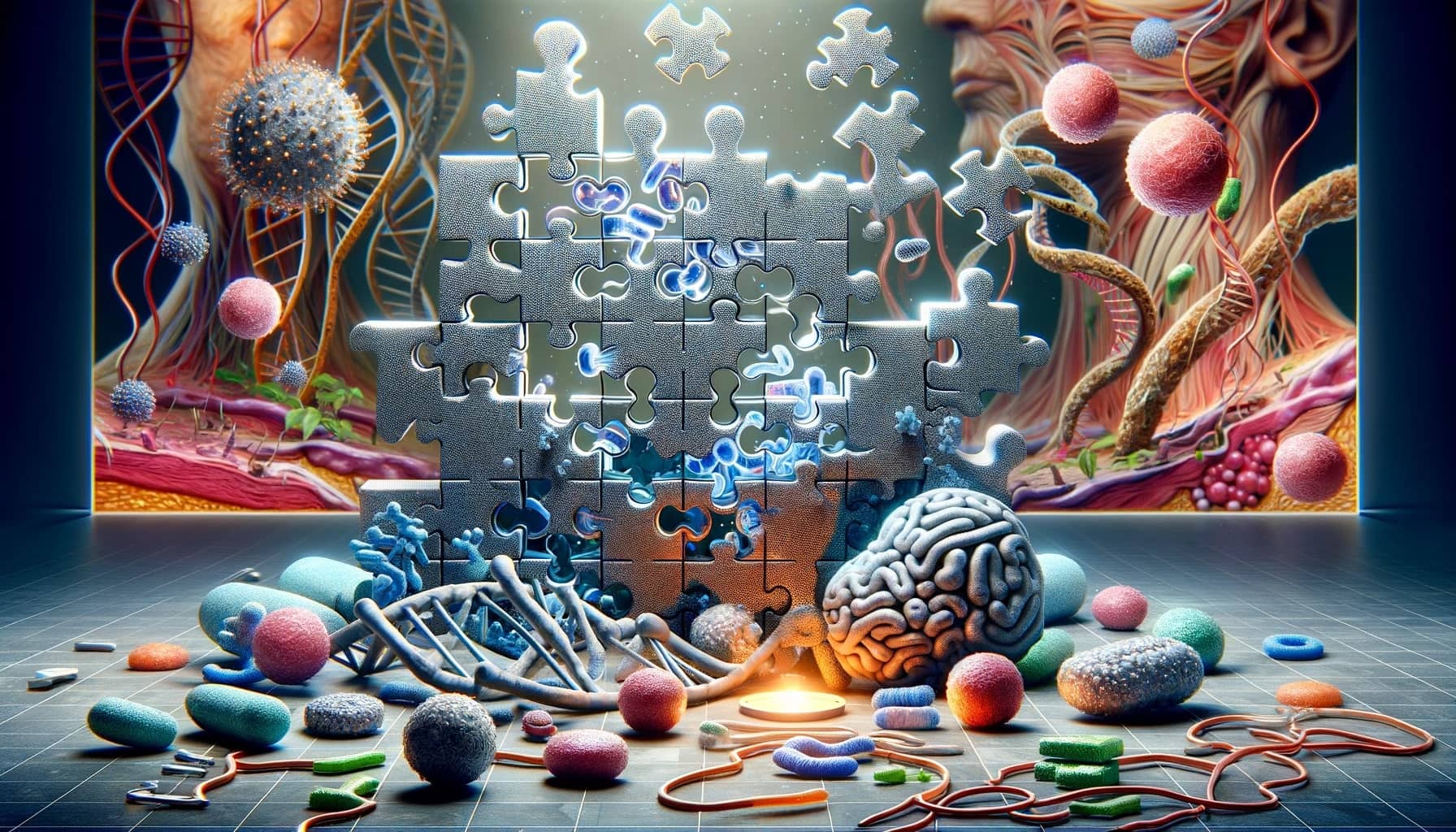
The Proteome Puzzle: Decoding Skin Aging and Disease
Life’s journey brings changes in our bodies, telling the story of aging. A key part of this story is the proteome – all the proteins in our body. Since 1994, when we first started talking about the proteome, research in this area has grown a lot. It helps us understand how proteins work in our bodies and how they change as we get older, affecting our health and how our skin ages.
Understanding Protein Damage and Its Effects
Proteins are complex and vital parts of our cells, working like gears in a machine. They need to fold in just the right way to work properly. Problems in this process, caused by changes in their structure or damage, can have big impacts. Recently, there’s been more focus on how protein damage, especially related to aging and diseases that come with getting older, affects our health.
Proteome Versus DNA: A New Focus
Protein carbonylation, a kind of damage to proteins, is increasingly linked to aging and diseases that come with age. Studies show that the health of our proteome, more than our DNA, is key to how well cells recover from damage, like that from radiation. This has shifted the focus to protecting our proteome to better fight aging and damage from environmental factors like UV rays.
Skin Aging from a Proteome Angle
Skin aging affects many of us. Our skin, which protects us from the environment, faces many aging accelerators. UV rays, for example, create oxidative stress, damaging skin proteins. This leads to wrinkles, less elasticity, and changes in skin texture. Understanding how to protect our skin’s proteins could help slow down these signs of aging.
New Ways to Protect the Proteome
What if we could shield our skin’s proteins from this damage? Recent research is looking into ways to do this. From antioxidants that guard against oxidative stress to new molecules that help proteins stay stable under stress, these are exciting developments.
Proteome Health and Diseases That Come with Age
These breakthroughs aren’t just about looking younger. They’re important for diseases like Alzheimer’s, Parkinson’s, and diabetes. In these diseases, damaged proteins disrupt cells and speed up the progression of the disease.
The Future of Aging and Disease Research
Understanding the proteome opens new ways to fight aging and age-related diseases. By targeting protein health, we can develop strategies to address the core of these issues. This could mean changes in diet, lifestyle, or new treatments, all aimed at keeping our proteins healthy as we age.
Conclusion: The Importance of Proteome Health
In summary, aging is a complex process, with the proteome playing a big role. By learning more about protein health and damage, we can find new ways to lessen the effects of aging and age-related diseases. It’s an exciting journey, showing the amazing ability of life to adapt and endure.
